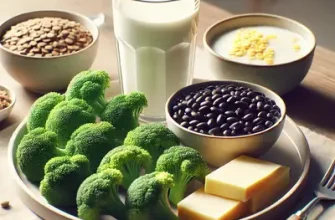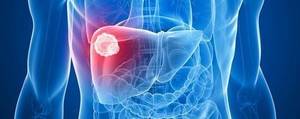Feeling bloated after eating, even when you’ve only had a small meal, can be frustrating and uncomfortable. For many people, this is more than just an occasional inconvenience—it becomes a recurring issue that affects their quality of life. Let’s delve into why this happens, what it means for your health, and what you can do about it.
Understanding Bloating: Causes and Mechanisms
Bloating is characterized by a sensation of fullness or tightness in the abdomen. It is often caused by an accumulation of gas, changes in gut motility, or digestive disturbances. There are multiple reasons why even small meals may lead to bloating:
| Possible Cause | Description |
|---|---|
| Delayed Gastric Emptying | Slow stomach emptying (gastroparesis) can cause food to linger, leading to a feeling of fullness. |
| Food Intolerances | Lactose, gluten, and FODMAP intolerance can all trigger excessive gas production and discomfort. |
| Gut Microbiome Imbalance | An overgrowth of certain bacteria can lead to excessive fermentation, causing gas and bloating. |
| High-Fiber Foods | Foods rich in fiber (beans, vegetables) are healthy but may cause gas buildup in sensitive people. |
Did You Know?
A recent study published in Gastroenterology (2022) found that up to 20% of people report feeling bloated at least once a week. This statistic underscores how common this issue is, affecting millions of people worldwide.
Common Triggers: Food and Lifestyle Factors
Certain foods are notorious for contributing to bloating, even in small amounts. These include cruciferous vegetables (like broccoli and cauliflower), beans, carbonated drinks, and artificial sweeteners. Additionally, eating too quickly or swallowing air when chewing gum can also contribute to bloating.
| Food Item | Potential Impact on Bloating |
|---|---|
| Carbonated Beverages | The carbon dioxide gas in these drinks can expand in the stomach, causing bloating. |
| Beans and Lentils | High in oligosaccharides, a type of fiber that gut bacteria ferment, leading to gas. |
| Dairy Products | If lactose intolerant, the undigested lactose ferments in the gut, producing gas. |
Medical Situations: Examples from Practice
Consider the case of a 45-year-old woman experiencing persistent bloating even after eating small portions of food like salad. Upon further examination, it was found that she suffered from small intestinal bacterial overgrowth (SIBO). After a course of antibiotics to restore her gut flora balance, her symptoms significantly improved. This is a reminder that while bloating can be benign, in some cases, it may indicate a more complex underlying issue.
In another instance, a 30-year-old man with recurrent bloating after meals was found to have lactose intolerance. By switching to lactose-free dairy options, his symptoms were largely resolved.
Trends in Managing Bloating
Managing bloating has evolved over the years with a growing emphasis on gut health. The following trends are gaining popularity for addressing the root causes of bloating:
- Probiotics and Prebiotics: Recent studies suggest that certain probiotic strains, like Bifidobacterium lactis, can help reduce bloating by promoting a healthy balance of gut bacteria.
- Low-FODMAP Diet: Originally developed for irritable bowel syndrome (IBS), this diet eliminates fermentable carbs (FODMAPs) that can contribute to bloating. Adopting a low-FODMAP diet can reduce symptoms by up to 50% in people with IBS.
- Mindful Eating: Eating slowly, chewing thoroughly, and avoiding distractions while eating can all reduce swallowed air and ease digestion, minimizing bloating.
Price Considerations: Solutions for Reducing Bloating
| Solution | Average Cost (USD) | Description |
|---|---|---|
| Probiotic Supplements | $20 – $50 per month | Promotes gut health and balances microbiome. |
| Digestive Enzymes | $15 – $30 per bottle | Helps breakdown specific foods like lactose or fat. |
| Low-FODMAP Meal Kits | $8 – $12 per serving | Pre-prepared meals that reduce bloating triggers. |
Did You Know?
A 2021 survey by the American Gastroenterological Association found that 70% of people experiencing bloating had not sought medical help, instead opting for over-the-counter treatments like antacids, which may not address the root cause of the issue.
Advice from Our Editorial Team
If you find yourself feeling bloated after even small meals, it’s essential to pay attention to your diet, eating habits, and overall gut health. Start by keeping a food diary to identify any potential triggers and consider consulting a healthcare professional to rule out underlying conditions like lactose intolerance, SIBO, or gastroparesis. Remember, a balanced gut microbiome is key to avoiding frequent bloating. Probiotics, a low-FODMAP diet, and mindful eating are all worthwhile strategies to explore. Always prioritize your health by listening to your body and seeking professional guidance when needed.









